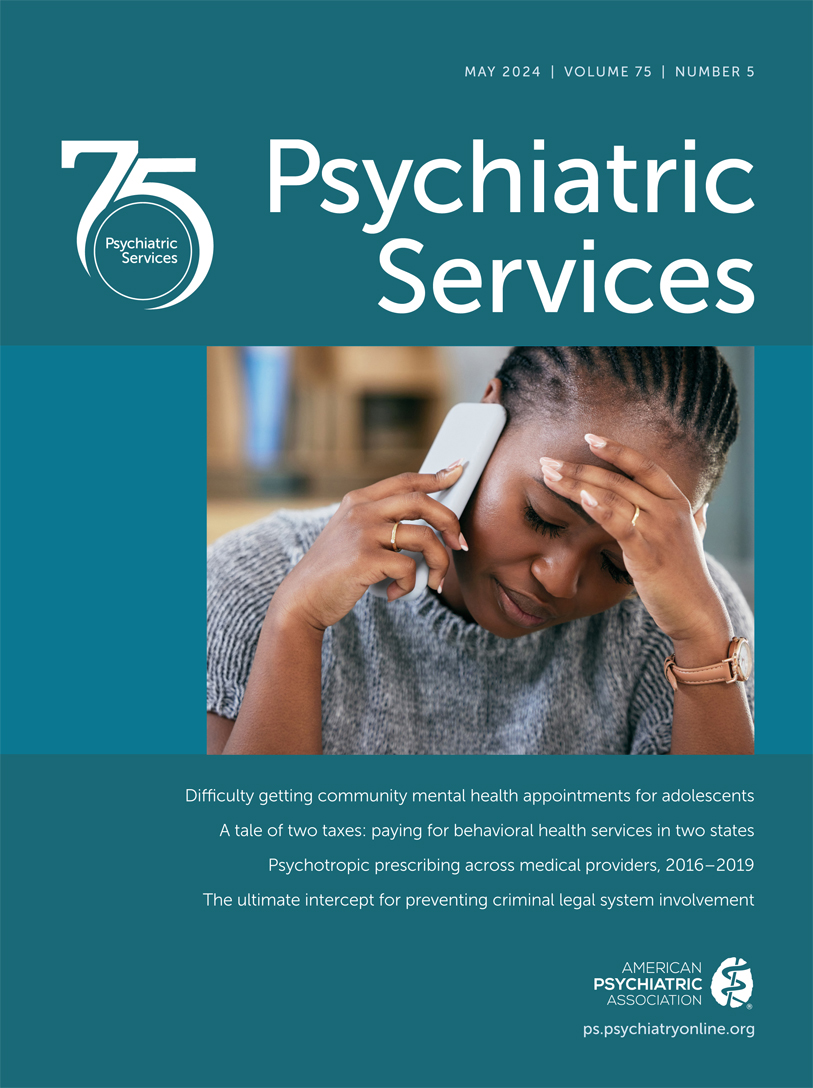Assessing Access to Trauma-Informed Outpatient Mental Health Services for Adolescents: A Mystery Shopper Study
Abstract
Objective:
The authors aimed to examine how access to trauma-informed mental health services in safety-net health centers varies by insurance type and race-ethnicity of the care seeker.
Methods:
In this mystery shopper study, three women (White, Latina, and Black voice actresses) called community mental health centers (CMHCs) and federally qualified health centers (FQHCs) (N=229) in Cook County, Illinois, posing as mothers requesting a mental health appointment for their traumatized adolescent child. Each health center was called twice—once in the spring and once in the summer of 2021—with alternating insurance types reported (Medicaid or private insurance). Ability to schedule an appointment, barriers to access, wait times, and availability of trauma-specific treatment were assessed.
Results:
Callers could schedule an appointment in only 17% (N=78 of 451) of contacts. Reasons for appointment denial varied by organization type: the primary reasons for denial were capacity constraints (67%) at CMHCs and administrative requirements to switch to in-network primary care providers (62%) at FQHCs. Insurance and organization type did not predict successful appointment scheduling. Non-White callers were significantly less likely (incidence rate ratio=1.18) to be offered an appointment than the White caller (p=0.019). The average wait time was 12 days; CMHCs had significantly shorter wait times than FQHCs (p=0.019). Only 38% of schedulers reported that their health center offered trauma-informed therapy.
Conclusions:
Fewer than one in five contacts resulted in a mental health appointment, and an apparent bias against non-White callers raises concern that racial discrimination may occur during scheduling. For equitable access to care, antidiscrimination policies should be implemented.
Access content
To read the fulltext, please use one of the options below to sign in or purchase access.- Personal login
- Institutional Login
- Sign in via OpenAthens
- Register for access
-
Please login/register if you wish to pair your device and check access availability.
Not a subscriber?
PsychiatryOnline subscription options offer access to the DSM-5 library, books, journals, CME, and patient resources. This all-in-one virtual library provides psychiatrists and mental health professionals with key resources for diagnosis, treatment, research, and professional development.
Need more help? PsychiatryOnline Customer Service may be reached by emailing [email protected] or by calling 800-368-5777 (in the U.S.) or 703-907-7322 (outside the U.S.).



